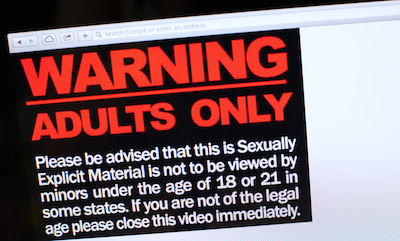Pornography Is Not a ‘Public Health Crisis’.
 Since 2016, 17 states have introduced nonbinding resolutions declaring pornography a public health crisis, citing a range of concerns ranging from addictiveness to infidelity to sex trafficking.
Since 2016, 17 states have introduced nonbinding resolutions declaring pornography a public health crisis, citing a range of concerns ranging from addictiveness to infidelity to sex trafficking.
Now, two researchers from the School of Public Health have written an editorial in the American Journal of Public Health special February issue arguing against the claim that pornography is a public health crisis, and explaining why such a claim actually endangers the health of the public.
“The movement to declare pornography a public health crisis is rooted in an ideology that is antithetical to many core values of public health promotion and is a political stunt, not reflective of best available evidence,” write Kimberly M. Nelson, assistant professor of community health sciences, and Emily F. Rothman, professor of community health sciences.
The authors write that pornography does not fulfill the public health field’s definition of a public health crisis laid out in the Oxford Handbook of Public Health Practice. Pornography use has increased steadily over time rather than spiking or reaching a tipping point; it does not “directly or imminently” lead to death, disease, property destruction, or population displacement; and it does not overwhelm local health systems.
Instead, Nelson and Rothman write, the existing evidence suggests that there may be negative health consequences for some people who use pornography, no substantial consequences for the majority, and even positive effects for some (for example, through safer sexual behaviors such as solo masturbation). Motivating people to use less extreme pornography, and less frequently, are reasonable harm reduction goals, the authors write, instead of trying to end all use.
Increasing pornography literacy would also be useful, they write. Rothman and colleagues outline their pornography literacy program for Boston area adolescents in a paper in the same journal issue.
What is the harm of calling pornography a public health crisis? Nelson and Rothman argue that this mischaracterization can lead to unwarranted policy or funding shifts, rather than saving the power to mobilize the public health workforce for real crises. “Moreover, pathologizing any form of sexual behavior, including pornography use, has the potential to restrict sexual freedom and to stigmatize, which is antithetical to public health,” they write.